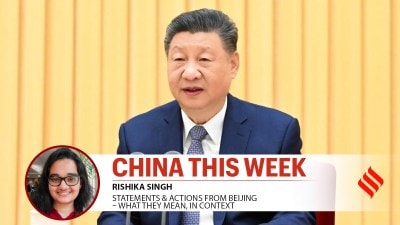‘Authentic’ is Merriam-Webster’s word for 2023, as AI blurs lines between reality and fiction
In a world of deepfakes and AI, ‘authentic’ stands out as Merriam-Webster’s Word of the Year 2023.
 'Deepfake' has also made it to the shortlist. (Image: Gerd Altmann/Pixabay)
'Deepfake' has also made it to the shortlist. (Image: Gerd Altmann/Pixabay) In a year filled with debates over what’s real and what’s fake, Merriam-Webster has fittingly crowned “authentic” as its 2023 Word of the Year. The dictionary defines authentic as “not false or imitation,” but in an age of deepfakes and AI-generated content, even simple concepts like authenticity have become complex.
Merriam-Webster notes that searches for the word authentic surged this year as “the line between ‘real’ and ‘fake'” increasingly blurred. Of course, the rise of advanced AI tools played a major role in that blurring, allowing convincing images, videos, and text to be generated at the click of a button.
One of the top runners-up for Word of the Year was “deepfake,” the term used to describe media that has been digitally altered and manipulated using AI. Deepfakes can impersonate real people and simulate events that never actually occurred. Their potential to distort reality highlighted the importance of being able to make out what’s authentic.
Authenticity has also become a major point of contention in art this year. Tools like Dall-E and Midjourney can produce incredibly realistic images and high-quality art based on simple text prompts. But many questioned whether AI art, no matter how impressive, could ever be considered truly “authentic” given the minimal human input.
Beyond technology, the concept of authenticity likewise also made its way into celebrity culture and social media this year. For instance, Elon Musk, the controversial new owner of Twitter, suggested that people should be more “authentic” in their tweets and posts.
That said, Merriam-Webster isn’t the only dictionary influenced by the AI wave this year. Earlier, Collins Dictionary declared ‘AI’ as its word of the year. Now let’s see whether Oxford gets with the program.







